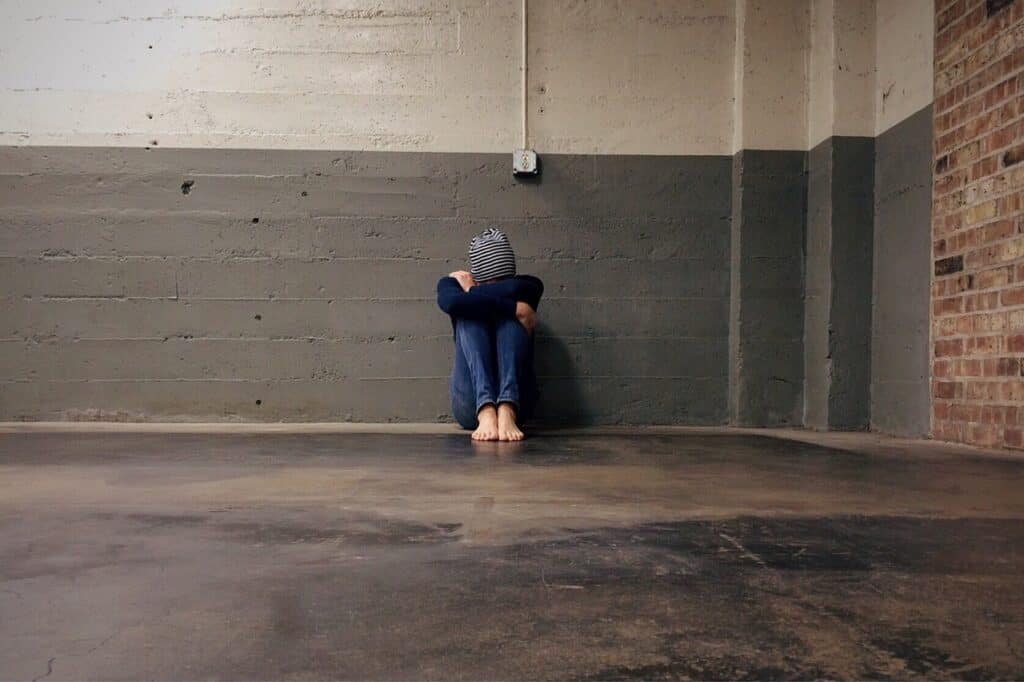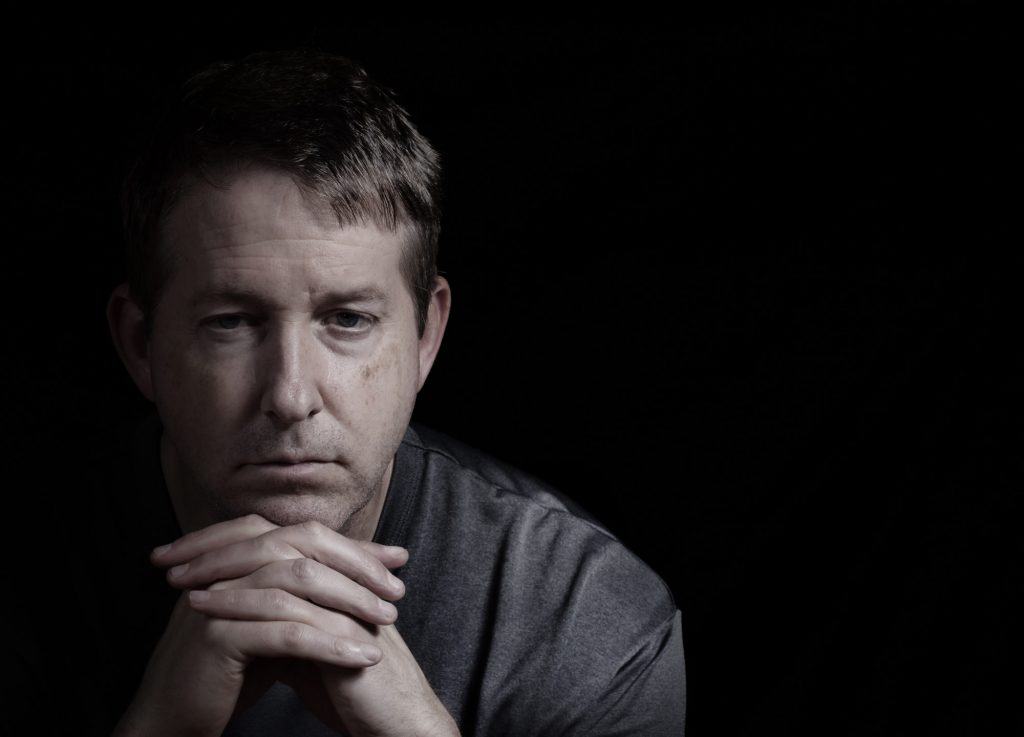For many people new to recovery, there can be a lot of positive and negative emotions. Keeping a positive attitude can be hard when a person first gets sober. The good news is it gets better the longer you stay sober! Learning to live life on life’s terms is something you can work on for a day at a time.
One thing you can start working on today is a positive attitude. Your attitude can affect everything you do. Nobody has a complete attitude breakthrough overnight, but a day at a time, you will grow. As a person in recovery, you will begin to gather some hope and realize your capacity for resilience. You’re a strong human being, and you’ve been through a lot!
Accepting Yourself and your Circumstances
A positive attitude is easier to achieve once you realize that you need help, but you’ve found the way out! You’re powerless over your addiction. One of the first things you’ll work on when you get sober is accepting that you have an addiction. Once you’ve done that, you’ll start to learn to accept the other circumstances (and even other people!) in life for what they are.
Everything you do in recovery can be done a day at a time. You don’t have to become perfect or right all your wrongs overnight. You can accept that you have a problem and that you need help. Willingness will help you stay sober, so you no longer have to struggle through life sick from your addiction.
When you start treatment or go to 12-step meetings, you’ll find you’re not alone in your experiences. Addiction is a disease that can affect anyone from any background. It’s not a moral failure but a condition that affects the body, brain, and spirit.
Finding An Attitude of Gratitude
Finding gratitude can be hard when you first get sober, especially if you have many problems to face. An attitude of gratitude will probably come easier as you stay sober longer. Every day you stay sober is something you can be grateful for!
One way you can start to feel better about your future is to create a gratitude list. Every day, write a list of things you are grateful for. Even if it is something as simple as a juicy orange with your lunch, keeping track of the good things in life is essential. Also, every day sober is something you can add to that list!
Keeping a journal can also help you keep track of your victories in life. Every time you accomplish something you’re proud of, start to write it down.
Life changes quickly! Try to remember to take things a day at a time. If you’re having a bad day, there’s always tomorrow! Read back some of your lists and journal entries when you’re having a bad day.
Getting Help for Substance Use
Are you ready to reclaim your life from addiction? We can help you get sober and being the steps to healing and meaningful life. We’re here to help you; just reach out. You can contact us to learn about your options at 855-976-1495.
Addiction is a topic often discussed in the media, but it is still the subject of many stereotypes. It’s easy to imagine heroin addicts and homeless people addicted to alcohol. If you or somebody you love has a problem with alcohol or drugs, you’re not alone. You may wonder if a person can be addicted if they don’t meet your preconceived notions of addiction or alcoholism. There are a lot of myths about addiction. A lot of these myths can be harmful and keep people from getting the help they deserve. If you don’t fit a myth, you may wonder if you’re truly addicted or not.
Here are five significant myths about addiction:
- Myth 1: You have to hit a really low bottom to be considered an addict. Many people imagine a person addicted to drugs as being homeless or somehow derelict. While there are people who hit extreme “bottoms” with their drug use, there are also countless people who don’t fit that image. People with substance use disorders come from pretty much all walks of life. Many people manage to hold down jobs or responsibilities but are quite miserable because of their addiction.
- Myth 2: Addiction is a choice. Addiction is a disease that no one chooses. Many factors probably make some people more likely to be addicted than others. There is still a lot of research out there about addiction that needs to be discovered, but this is one of the most common myths about addiction. Studies show that some people experiment with substances, while others find substances impossible to put down.
- Myth 3: Pills aren’t a problem. Some people take drugs like Adderall for ADHD, but other people abuse them. Pills can be an addiction, even if a doctor continues to write you a prescription for them. Drugs like Klonopin, a benzodiazepine, can be highly addictive.
- Myth 4: Binge drinking isn’t addictive behavior. Binge drinking can involve drinking until you’re blackout drunk. This kind of lifestyle can place you in danger of alcohol poisoning and leave you to risky, scary behavior. What’s even worse is that you won’t remember it in the morning.
- Myth 5: I’m too young to be addicted. Young people can have substance use disorders, just like adults can. You can be an alcoholic and be drinking age or become addicted to marijuana in a state where pot is legal. Addiction can be to anything that alters your mood.
If you feel bad about your drinking or drug use, you probably have a problem with a substance. If your use of substances is causing you legal, physical, or relationship problems, there’s a good chance you will benefit from sobriety. If you’re having trouble getting sober on your own, then there is help available to you. You don’t have to face addiction on your own.
Getting Help, Getting Sober
We offer several services, including intervention services, to help you and your family recover from addiction. You can recover, and the great news is that help is available every step of the way. The first step is picking up the phone to learn more about how we can help. We’re here to answer any questions you may have. Contact us at 855-409-8869 to learn more about our services and how we can help.
Almost any drug that can cause psychological effects such as euphoria can be abused. People can become both psychologically and physically addicted to drugs or abuse, including alcohol. Addiction is a disease that does not discriminate. People from all walks of life can and do develop addictions to all kinds of drugs. Drug addiction is a massive problem in the United States, especially due to the opioid epidemic.
The good news is that people can also get clean and sober no matter what type or quantity of drugs they use.
Understanding Addiction
Drugs like opioids and methamphetamine are considered highly addictive. Addiction takes place because the continued use of these drugs causes physical changes in the brain. These changes make a person develop a tolerance to the drug, requiring more of it to get the same effects.
Not only do these drugs cause withdrawal effects, but they also cause a person to be more compulsive and do things they usually wouldn’t do, all in the pursuit of a high. Most people addicted to drugs or alcohol display addictive behavior. They may sell possessions, try to get illegal prescriptions, or even try a more potent drug to get the relief they’re seeking.
Withdrawal effects like cramps, shaking, nausea, and bone pain often occur if a person goes without their drug of choice for some time.
The Most Dangerous Drugs
Which drugs are the most dangerous? Drugs that are highly addictive and can cause overdose deaths would be a the top of the list when it comes to danger. However, almost any drug can cause a person to do illegal, dangerous, or out of character.
Here are some of the most dangerous drugs:
- Opioids like Oxycontin, Vicoden, heroin, opium, and fentanyl are all dangerous. Fentanyl, in recent years, has been the cause of thousands of overdose deaths because of its potency. Sometimes street drugs are laced with fentanyl without the user’s knowledge.
- Cocaine and crack can cause users to act erratically, be paranoid, or violent. They both can damage the heart, while crack can cause damage to the lungs as well. Some people who overdose experience seizures or heart attacks.
- Methamphetamine is an intense, highly addictive drug that can cause hallucinations and extreme paranoia when a user has stayed awake for days. Addiction devastates the body, causing skin problems, rotten teeth, and weakening the heart.
- Benzodiazepines such as Klonapin are usually prescribed to help people with anxiety or muscle tightness. People who abuse the drug can become physically addicted and develop irregular heartbeat, lung problems, and depression. Combined with other drugs or medications, there is a potential for fatal overdoses.
- Alcohol addiction is one of the most prevalent addictions in the world. Alcohol overdose can cause death. People who combine alcohol with other substances are more likely to overdose or cause serious injuries.
Addiction isn’t a choice. Some people are more prone to substance use disorders than others. When a person is addicted to a drug, trying to stop using it can be a constant struggle. Physical withdrawal symptoms are often intense and sometimes even dangerous. For highly addictive drugs, a clinical detox is usually required. Some people also need Medication-Assisted Treatment to help them decrease cravings and begin the journey to recovery. Detox is an important starting point to help people get clean in a safe, comfortable environment.
Any drug that can be abused has the potential to become an addiction. If you’re experiencing a substance use disorder, help is available.
Getting Help
Do you or a loved one have a problem with substance use? Are you sick and tired of being sick and tired? You’re not alone! We can help you get sober in a safe, professional, inspiring environment. Even during the COVID-19 crisis, we’re here to help you.
Call us at 855-409-8869 for more information on our recovery services.
Did you know approximately 80 percent of the global opioid supply is consumed in the United States? This would suggest that doctors and American citizens are accustomed to prescribing and receiving painkiller prescriptions.
Painkillers do provide relief from pain and can give people a sense of euphoria. But, if taken for extended periods of time, this need to feel good and escape from pain comes with a price.
While they help in the short term when dealing with pain, painkillers’ long-term effects can be devastating. Painkillers have the ability to hook a user with a rush of euphoria but ultimately impair the brain’s ability to generate feel-good chemicals on its own.
As our nation reckons with an opioid crisis, many are beginning to realize prescription painkillers carry the risk of these and other harmful long-term effects, too.
From Use to Abuse with Prescription Painkillers
Prescription medications may seem harmless. You were having pain from an injury or surgery, and the doctor said you should take these to help. You’re not injecting or smoking anything, and that’s how addiction happens.
Actually, some recent numbers suggest that as many as 75 percent of opioid addiction cases involve prescription painkillers like Oxycodone (found in OxyContin) or Hydrocodone (found in Vicodin).
Your brain and body build tolerance the more you use drugs like these, which may lead to increased doses to achieve similar effects. It doesn’t take long to go from this state to physical dependence on the drug and eventually addiction.
How Painkillers Affect the Brain
Painkillers hit your brain with a one-two punch to relieve pain. They block the receptors responsible for detecting pain, and they spur the release of those feel-good chemicals we mentioned earlier. This is great for helping you get through the temporary pain of healing from an injury.
Unfortunately, the longer you use the drug, the more it disrupts your system’s ability to function normally on its own. In fact, your brain will gradually release less and less of these neurotransmitters naturally, which can cause you to feel negative emotions and physical pain more strongly when the drug wears off.
Potential Consequences of Long-Term Painkiller Use
As you continue using painkillers, changes occur throughout the brain, including:
- Brain cell death
- Impairment to the systems responsible for thinking, learning, and remembering.
- Nerve cell damage
- Inability to regulate mood and emotions
Depending on the length and severity of painkiller abuse, as well as how it’s being used, you can also develop issues with your heart, lungs, nose, and other parts of the body.
Get Help Healing from Painkiller Addiction at Cycles of Change
Trying to quit painkillers cold turkey when you’re struggling with addiction may lead to relapse. At Cycles of Change Recovery, we are equipped to help you get through the initial detoxification phase of recovery as comfortably and safely as possible.
From there, we can work with you on developing the skills you need to prevent relapse. If you’re struggling with complicated issues like anxiety or depression, our experienced staff is trained in dual diagnosis treatment that can help you deal with both conditions that can lead to better recovery outcomes.
We know that addiction impacts the entire family, so your personalized recovery program can be tailored to fit your family’s needs, as well. If you’re ready to break free from the destructive cycle of painkiller addiction, contact us today.
Police Officers in Need of Assistance: Negative Effects of Painkillers
You’ve seen some terrible things on the job. Families torn apart by random acts of violence. Teenagers’ lives ruined or lost over drugs.
You’ve feared for your own life a few times, too.
It’s hard to talk about these feelings with your family, and why would you even want to? You want to protect them from feeling the way you do.
And mentioning anything to the other officers at work about the anxiety, fear or depression you’re experiencing is definitely out. You’ve heard the way they talk about the last guy who couldn’t cut it on the force.
Then, your doctor prescribes painkillers to help with a lingering injury you suffered on the job, and suddenly, you’re finding it easier to deal with those difficult emotions. While prescription painkillers can provide temporary relief from physical and even mental and emotional pain, they’re not a long-term solution for the issues you’re facing.
I Know the Dangers of Drug Abuse. It Won’t Happen to Me.
As an officer of the law, you have witnessed plenty of unnecessary anguish caused by drugs. Your experiences will keep you from making the same mistakes, right?
Unfortunately, some estimates for substance abuse rates among first responders are hovering around 30 percent. Why are these numbers so high?
For many police officers, your days have long bouts of inactivity, maybe seated in a squad car, punctuated by bursts of extreme physical activity and highly stressful situations. This seesaw effect can take a toll on both the body and the mind.
You’re also more likely to encounter injuries on the job than most other professions, and you may be prescribed opioids to deal with the pain.
How Side Effects of Painkillers on Police Officers Can Be Dangerous
While prescription painkillers can help manage pain associated with injuries during recovery, they’re not a good solution for chronic pain. Taking them long-term can build up tolerance, which may lead to dependence and addiction.
You may experience nausea or vomiting while taking the drugs. They can also cause drowsiness. For a profession that requires quick critical thinking and a level head to defuse potentially combustible situations, this can be dangerous.
If you do develop addiction, suffering through withdrawal symptoms while in the field can put you at increased risk. These can include:
- Anxiety
- Irritability
- Muscle stiffness or pain
Those struggling with painkiller addiction often find themselves having other issues on the job like:
- Lowered productivity
- Social isolation
- Tardiness and poor attendance
Police Officers May Struggle with Other Opioids
When an addiction to painkillers becomes too difficult to maintain either due to supply or financial issues, many users turn to illicit drugs like pills bought off the street or even heroin. This can be extremely dangerous as these drugs could contain fentanyl.
Fentanyl is an incredibly powerful synthetic opioid that is considered to be between 80-100 times more powerful than morphine. Even small doses can be fatal. If you encounter fentanyl in the course of your job, make sure you’re wearing proper protective gear and following protocol to avoid inhaling or making contact with the substance.
Treatment for Police Officers with Painkiller Addiction
If you’re suffering with an addiction to painkillers, that doesn’t mean you have failed. Addiction is a complex disease that affects different people in different ways. Most importantly, it’s possible to recover.
At Cycles of Change, our first responders program is tailored to meet the specific needs of police officers and others in the first responder community. We also work with each individual client to find therapies that are best suited for each case. Healing the family and home from the damage caused by addiction is an integral part of recovery, and we can help with that, too.
Treatment is confidential, so you don’t have to worry about the stigma associated with seeking help for issues like addiction or anxiety. Here, you’ll learn healthier coping met
some estimates for substance abuse rates among first responders are hovering around 30 percent. Why are these numbers so high?
hods for the unique stresses of your job while developing skills to avoid relapse.
Contact one of our addiction specialists to begin your recovery today.





